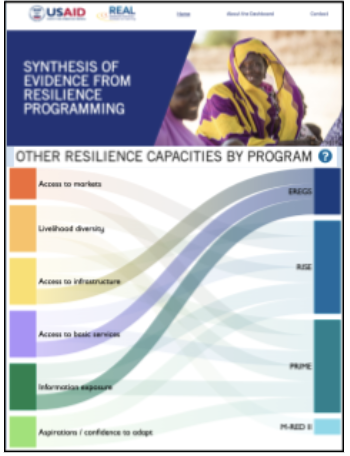By Micah Frumkin and Jovana Bulatovic
In today’s rapidly evolving environment, the international donor landscape is undergoing significant shifts, made even more complex by global tensions and the impacts of climate change. In this context, a pressing need for dependable, accessible, and evidence-based information is palpable. In response, donors, implementers, and practitioners increasingly turn to monitoring, evaluation, and learning (MEL). Yet, traditional MEL practices are proving insufficient. As we navigate an era marked by technological leaps, these practices are on the cusp of a transformative shift. By embracing big data analytics and artificial intelligence, development organizations are poised to redefine how we understand development impact.
At the Institute for Development Impact (I4DI), we believe that blending technology with MEL is the wave of the future, and our clients agree. At the crossroads of MEL and technology, we champion three transformative pillars: innovative data gathering and aggregation, rigorous evidence synthesis and analysis, and dynamic knowledge sharing and dissemination.
Innovative Data Gathering and Aggregation
The use of technology-enabled data collection approaches has significantly enhanced the quantity and quality of available data. Some technology, such as mobile data collection, has been around for years and is being continuously improved. Emerging technologies, such as the Internet of Things (IoT), are increasingly being used to monitor and report on various development indicators in real-time. This allows for swift and more tailored responses to changes on the ground. In a recent United States Agency for International Development (USAID) conflict assessment, I4DI tapped into these and similar tools that utilize natural language processing and automated data collection from large data platforms like social media, resulting in greatly enhanced final products. The graphic below demonstrates I4DI’s approach to using social media data to inform programming decisions in relation to current events and operational contexts. ![]()

Rigorous Evidence Synthesis and Analysis
As technology evolves, our capacity to process and interpret vast amounts of qualitative data has grown exponentially. For instance, under our ongoing Climate Adaptation Knowledge and Learning Activity (CALA) for USAID’s Bureau for Humanitarian Assistance, manual review would have restricted us to a mere fraction of available documents. However, with natural language processing, we’re now analyzing 4,000+ documents using sophisticated algorithms. Machine learning techniques are unlocking deeper insights from intricate datasets, unveiling patterns and trends that were previously obscured. Geospatial analytics combined with satellite imagery and Geographic Information Systems (GIS) add a spatial dimension to our data, deepening our grasp of the interplay between geographical variables and developmental metrics. This synergy allows us to provide vastly better information to counterparts working at the intersection of humanitarian assistance and climate adaptation.
Dynamic Knowledge Sharing and Dissemination
Open-source platforms and Application Programming Interfaces (APIs) are making it easier for various stakeholders to integrate, share, and leverage data across multiple platforms, creating a more collaborative and transparent ecosystem.
Dr. Azra Nurkic
I4DI CEO and Co-Founder
One of the most visibly apparent places where the combination of MEL and technology is having great impact is in the sharing and dissemination of knowledge, data, and information. The days of relying on dry, text-based reports are over. We now know that different audiences learn in different ways, and that the data literacy of decision makers is greater than it has ever been. I4DI is capitalizing on this opportunity by putting the right information in the hands of the right people, right when they need it.
Sometimes we do that by narrowing the gap between civil society and the public sector, such as through our Tech for Green Cities (T4GC) work in Cambodia where we used mobile technology to address solid waste management issues throughout the country. Using an app on their smartphones, Cambodian citizens were able to identify solid waste issues, which were then shared with solid waste management services on a real-time dashboard. I4DI has also used web-based interactive dashboards as an alternative to written reports, enabling users to analyze data and draw conclusions themselves, instead of only learning what study teams share with them. The Synthesis Of Evidence From Resilience Programming that we recently published is a great example of bringing data to the people. As a former head of USAID’s Center for Resilience reflected on his experience, he noted that throughout his tenure in the field he had never encountered such seamless access to and interpretation of data across programs and geographies. This newfound approach holds promise of significantly enhancing comprehension of the programming and facilitating more informed decision-making. 
Charting New Horizons: The Next Thing for MEL and Technology
At I4DI, we are excited about the potential for MEL to sculpt the future of development. We’re envisioning beyond MEL by integrating technology to redefine our relationship with data and harness it to mold programs, strategies, policies, and practices worldwide. As MEL and technology continually intertwine, the onus lies in cultivating a culture that thrives on perpetual learning and agility to ensure methods and tools align with a world that never stops changing.
Micah Frumkin is I4DI’s Senior MERL Specialist and has been leading the company’s foray into the integration of MERL and technology as the technical lead on key programs such as the Climate Adaptation Knowledge and Learning Activity (CALA) for USAID’s Bureau for Humanitarian Assistance and the USAID/Sri Lanka Monitor, Document, Evaluate, and Learn (MODEL) Activity. Micah brings more than 15 years of MERL experience for a wide range of public and private sector clients.
Ms. Bulatovic is an I4DI MEL Specialist and brings a wealth of experience in MEL system development, results-based management, and strategic planning. She has collaborated with esteemed entities like the EBRD, the World Bank, governments of the Western Balkans, and various NGOs. Throughout her career, she has ardently advocated for gender mainstreaming and inclusive decision-making through technology-based solutions. She is currently leading several projects focused on using technology to drive evidence-based decisions, such as for Mars Inc and the Livelihoods fund on the CocoaYiedie project in Ghana.





